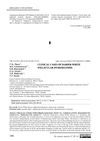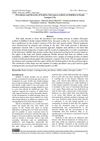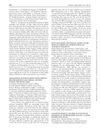 November 2023 in “Deleted Journal”
November 2023 in “Deleted Journal” Multimedia education greatly improves women's knowledge and management of PCOS.
 November 2023 in “Linköping University medical dissertations”
November 2023 in “Linköping University medical dissertations” Keratinocytes and adipose-derived stem cells can effectively heal difficult skin wounds.
 October 2023 in “Journal of Medicine, University of Santo Tomas (JMUST Online)”
October 2023 in “Journal of Medicine, University of Santo Tomas (JMUST Online)” Elderly patients frequently suffer from skin conditions, especially inflammatory ones, highlighting the need for better healthcare.
 October 2023 in “Biomedical science and engineering”
October 2023 in “Biomedical science and engineering” Innovative methods are reducing animal testing and improving biomedical research.
 October 2023 in “International journal of biology, pharmacy and allied sciences”
October 2023 in “International journal of biology, pharmacy and allied sciences” Personalized treatment plans combining natural and synthetic approaches are important for managing alopecia effectively.
 September 2023 in “International journal of medicine”
September 2023 in “International journal of medicine” AI is revolutionizing healthcare by improving diagnosis, treatment, and monitoring, but still needs close supervision.
 September 2023 in “Frontiers in medicine”
September 2023 in “Frontiers in medicine” The mTOR signaling pathway is crucial for hair health and targeting it may lead to new hair loss treatments.
 September 2023 in “International journal of Unani and integrative medicine”
September 2023 in “International journal of Unani and integrative medicine” Hair loss patterns are linked to temperament and can help diagnose it.
 August 2023 in “International journal of research in medical sciences”
August 2023 in “International journal of research in medical sciences” The serum is safe and helps treat premature greying of hair.
 July 2023 in “Clinical, cosmetic and investigational dermatology”
July 2023 in “Clinical, cosmetic and investigational dermatology” Plica neuropathica can be a sign of schizophrenia and improves with antipsychotic treatment.
 June 2023 in “International journal of biology, pharmacy and allied sciences”
June 2023 in “International journal of biology, pharmacy and allied sciences” New medications are improving depression treatment, emphasizing accurate diagnosis and chronic care.
 June 2023 in “Animal Bioscience”
June 2023 in “Animal Bioscience” Vimentin and transthyretin proteins are linked to black coat color in sheep.
 June 2023 in “GSC Advanced Research and Reviews”
June 2023 in “GSC Advanced Research and Reviews” Hutchinson-Gilford Progeria Syndrome causes rapid aging from a genetic mutation, with no cure but ongoing research into potential treatments.
 May 2023 in “Animal Reproduction Update”
May 2023 in “Animal Reproduction Update” High levels of cortisol in hair show long-term stress which can lower fertility in animals.

Custom skincare can be made based on genes, fewer cats in Lublin have FeLV/FIV than national average, and studies also looked at small water bodies, river pollution, guppy growth, toxins in biochars, palm oil issues, and pumpkin seed oil for hair strength.

A new system for classifying curly hair types using precise measurements can improve hair care products and cultural inclusion.

The study aims to create a model to improve personalized and preventive health care.
 March 2023 in “Seminars in reproductive medicine”
March 2023 in “Seminars in reproductive medicine” PCOS often leads to sleep problems, especially obstructive sleep apnea, affecting overall health.

There is no cure for myotonic dystrophy type 1, so treatment focuses on managing symptoms and complications.
 January 2023 in “Open veterinary journal”
January 2023 in “Open veterinary journal” Cow blood vessel cell secretions helped heal rat burn wounds and may treat burns and hair loss.
 November 2022 in “CARDIOMETRY”
November 2022 in “CARDIOMETRY” A group has developed therapies that show promise for treating cancer and various other conditions.
 November 2022 in “Nihon Nyuusankin Gakkaishi/Nihon Nyūsankin Gakkaishi”
November 2022 in “Nihon Nyuusankin Gakkaishi/Nihon Nyūsankin Gakkaishi” The lotion with N793 strain significantly increased hair density and reduced hair loss safely.

New methods to classify curly hair types were developed based on shape and strength.
 November 2022 in “Journal of Education, Health and Sport”
November 2022 in “Journal of Education, Health and Sport” The skin's bacteria might influence the development of a hair loss condition called alopecia areata.
 October 2022 in “Medičnì perspektivi”
October 2022 in “Medičnì perspektivi” Darier-White disease causes skin and nail issues, starts around age 20, worsens until 40-50, and has poor treatment options.

Early identification of lupus through skin signs and blood tests is crucial in India.
 March 2022 in “Journal of Parasite Science”
March 2022 in “Journal of Parasite Science” Scabies affects 9.29% of rabbits in Kuala Lumpur, mostly with mild symptoms.
 January 2022 in “Acta Scientific Women's Health”
January 2022 in “Acta Scientific Women's Health” Early diagnosis and treatment of PCOS can prevent complications and improve symptoms.
 December 2021 in “Innovation in aging”
December 2021 in “Innovation in aging” Frailer men have a higher risk of worsening prostate problems and serious health events needing hospital care.
 October 2021 in “The Egyptian Journal of Hospital Medicine”
October 2021 in “The Egyptian Journal of Hospital Medicine” Alopecia areata causes patchy hair loss and involves immune system disruptions.






























